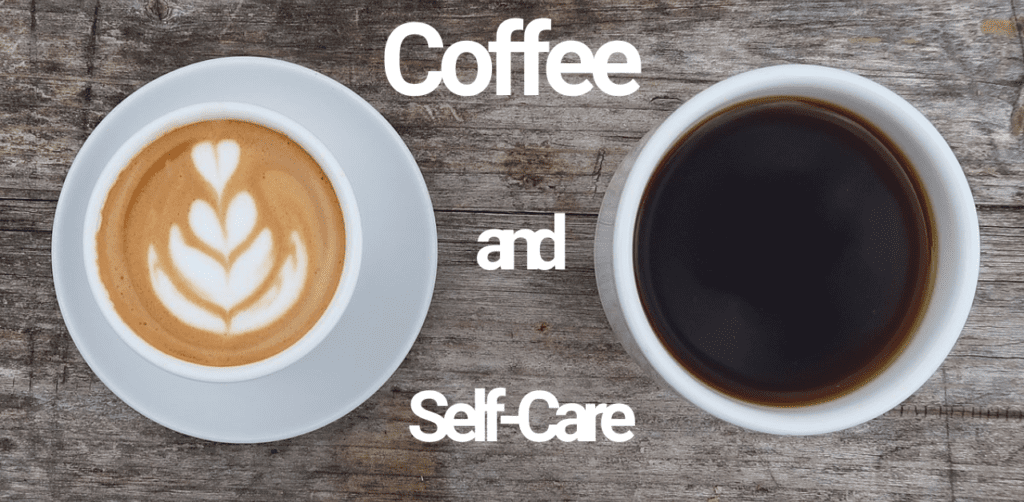How a Daily Cup Can Nurture Your Mind, Body, and Soul.
As we navigate the demands of modern life, self-care has become an essential practice for maintaining our overall well-being. While self-care encompasses a wide range of activities, one simple yet powerful ritual is often overlooked. Savoring a daily cup of brew. In this blog, we’ll explore the role of caffeine in self care routines and how it can promote mindfulness, relaxation, and productivity.
The Mindful Cup of Coffee Encourages Presence

Caffeine’s rich aroma and flavor invite us to slow down and appreciate the present moment. As we savor our coffee, we’re encouraged to let go of distractions and focus on the sensations in our cup. This mindful approach to caffeine consumption can have a profound impact on our mental state, helping us:
1. Cultivate gratitude: Appreciate the simple pleasures in life, like a warm cup of brew.
2. Reduce stress: Focus on the present moment, letting go of worries about the past or future.
3. Improve concentration: Train your mind to focus on the task at hand, just as you focus on the flavors in your coffee.
Coffee Can Calm the Mind and Body
While coffee is often associated with energy and alertness, it can also have a calming effect when consumed mindfully. The ritual of sipping brew can trigger a relaxation response, helping to:
1. Lower cortisol levels: Regular consumption has been shown to decrease cortisol levels (a stress hormone), leading to a sense of calm.
2. Promote self-care: Taking time to enjoy a cup of brew can be a powerful act of self-care, reminding us to prioritize our own well-being.
3. Foster a sense of comfort: The familiar taste and aroma of coffee can evoke feelings of comfort and security.
Act as The Productivity Boost: Coffee Can Fuel Focus and Creativity
Coffee’s stimulatory effects can have a significant impact on our productivity, helping us to:
1. Improve focus: Caffeine acts as a central nervous system stimulant. It can enhance concentration and attention, making it easier to tackle complex tasks.
2. Enhance creativity: Coffee’s stimulating effects can increase creativity, helping us to think outside the box and find innovative solutions.3. Boost motivation: A cup of caffeine can provide the motivation we need to tackle challenging tasks and pursue our goals.
We observe following effects :
(1) it has the tendency to postpone sleep.
(2) it reduces performance decline because of fatigue and boredom.
(3) it decreases hand steadiness.
(4) Caffeine elevate mood and these effects can last for up to 3 hours.
Read Our Blogs: Drink Water : A Must for a Better You
Incorporating Coffee into Your Self-Care Routine
To harness the self-care benefits of coffee, try the following:
1. Savor your brew: Take time to appreciate the flavors, aromas, and textures of your brew.
2. Create a ritual: Establish a consistent caffeine routine, such as sipping a cup each morning or afternoon.
3. Experiment with varieties: Try different coffee blends, roasts, and brewing methods to find your perfect cup.
4. Pair coffee with other self-care activities: Enjoy your caffeine while reading, meditating, or practicing yoga.
Know something about coffee beans :
beans come in four primary types, each with distinct characteristics in flavor, aroma, and strength. Here’s an overview:
1. Arabica (Coffea arabica)
- Origin: Native to Ethiopia, grown at higher altitudes in cooler climates.
- Flavor Profile: Mild, sweet, and aromatic, with notes of fruit, sugar, and floral undertones.
- Caffeine Content: Lower caffeine compared to other varieties.
- Strength: Smooth and less bitter, making it popular for premium blends.
- Best For: Light and medium roasts, single-origin brews.
2. Robusta (Coffea canephora)
- Origin: Commonly grown in Africa, Vietnam, and Brazil, often at lower altitudes.
- Flavor Profile: Strong, bold, and earthy with hints of nuttiness and chocolate. Can have a bitter or woody taste.
- Caffeine Content: Almost double that of Arabica, offering a stronger kick.
- Strength: Intense and robust, with a heavier body.
- Best For: Dark roasts, espresso, and instant coffee.
3. Liberica (Coffea liberica)
- Origin: Native to West Africa and Southeast Asia, less commonly cultivated.
- Flavor Profile: Unique and complex with fruity, floral, and smoky notes.
- Caffeine Content: Moderate, similar to Arabica.
- Strength: Medium-bodied with a distinctive aroma and taste.
- Best For: Specialty coffees and blends for a unique flavor profile.
4. Excelsa (Coffea excelsa)
- Origin: Grown in Southeast Asia, mainly in regions of the Philippines.
- Flavor Profile: Tart, fruity, and slightly sweet with a hint of spice. Known for its vibrant and bold flavors.
- Caffeine Content: Moderate to high.
- Strength: Light-bodied but with a strong, distinctive aftertaste.
- Best For: Blended with other beans to add complexity to the flavor.
Strength Comparison by Bean Type
- Mildest: Arabica – Best for those who prefer smooth and delicate flavors with lower bitterness.
- Strongest: Robusta – Ideal for coffee drinkers who enjoy bold, intense, and highly caffeinated brews.
- Unique & Balanced: Liberica and Excelsa – Provide a combination of distinctive flavors with moderate strength, appealing to niche tastes.
Each coffee bean type caters to different preferences, offering varying strengths and taste profiles to suit every palate.
Conclusion
caffeine is more than just a morning pick-me-up; it can be a powerful tool for promoting mindfulness, relaxation, and productivity. People vary in their caffeine sensitivity, so what works for one person might not work for another. By incorporating coffee into your self-care routine, you can cultivate a greater sense of presence, calm, and motivation. So, go ahead and savor that cup of coffee – your mind, body, and soul will thank you.
Also Read: SELF CARE (+ COFFEE)

